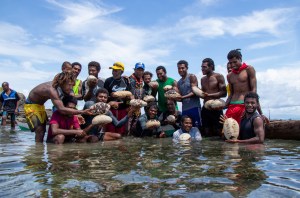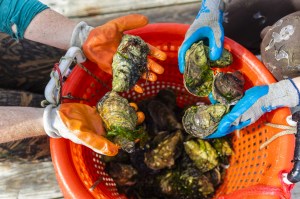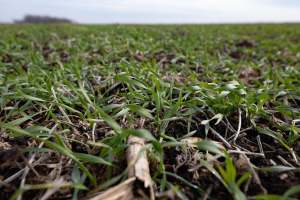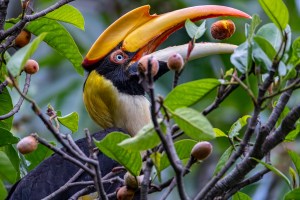Discover stories in Science Briefs
For Climate Adaptation, Forests Offer More Than Carbon Storage
New research finds that forests play a far greater role in protecting people from climate change than previously recognized.
Case Study: Sustainable Sea Cucumber Fisheries Offer Both Rewards & Challenges
Sustainable fisheries can be a win-win solutions for both conservation and local communities, especially in the Indo-Pacific. But establishing them comes with unique challenges.
Greener Cities, Cleaner Air: How Urban Design Can Help Save Native Birds
Urban greening and pollution reduction restore bird habitats. This research shows how conservation transforms cities for people and nature.
Grazing Lands as Climate Solutions: Key Practices for Carbon and Biodiversity
Study finds wetland restoration, pasture planting, and adjusted grazing can boost soil carbon and cut emissions—but more research is needed for lasting impact.
Mangroves Slash Hurricane Damage in Florida by Billions
In Collier County alone, mangroves cut annual losses by $67M and prevented $4B in damages during Hurricane Ian.
Solar’s Hidden Footprint: Why Accurate Land Data Matters for Conservation
New research reveals solar datasets underestimate land use by up to 34%, masking habitat loss in natural areas.
Forest Carbon Projects May Help More Than We Thought—New Study Finds Leakage Often Overestimated
New findings challenge current carbon market accounting practices and advocate for more nuanced, carbon-specific leakage estimates to ensure integrity and unlock greater investment in Climate Smart Forestry as a natural climate solution.
Maximizing Climate Returns: Albedo Accounting for Smarter Carbon Investments
New research shows how the albedo effect—Earth’s reflectivity—influences how well forest restoration projects can help cool the Earth.
Aquaculture Can Benefit Blue Carbon Ecosystems
A new review, led by TNC scientists, explores the potential for bivalve aquaculture to benefit blue carbon ecosystems.
How Living Cover Could Help Heal the U.S. Corn Belt
Regenerative ag practices—like cover crops, agroforestry, and pastured livestock—could reduce nitrate loss, erosion and emissions.
Climate Mitigation Depends on Seed-Dispersing Wildlife
A new study finds that the loss of seed-dispersing species in tropical forests more than halves the potential for areas of natural regrowth to sequester carbon.
Strictly Protected Marine Areas Can Effectively Deter Most Industrial Fishing
Industrial fishing vessels in fully and highly protected marine areas occur about 9 times less frequently than in unprotected surrounding waters.











